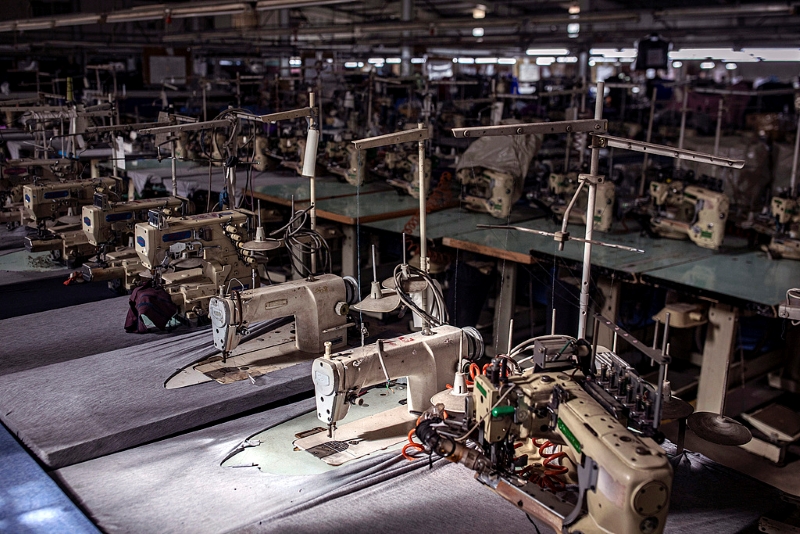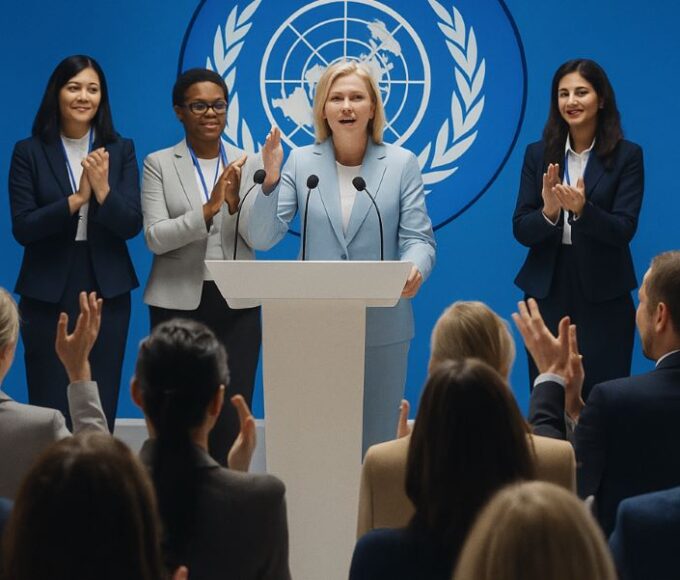For 25 years, the United States and Lesotho, an African nation, have maintained a mutually beneficial trade relationship. In this impoverished landlocked country, employment opportunities in the textile manufacturing sector have surged alongside expanding U.S. market demand, providing stable incomes for thousands of families and alleviating Lesotho’s poverty. On the other hand, American consumers have been able to purchase affordable jeans produced in the country. By all measures, this has been a win-win arrangement. However, this nation, heavily reliant on exports to the U.S. market, now faces an uncertain future.
Lesotho Declares “State of Disaster”
Due to the U.S. President’s tariff policy, affordable jeans from American brands may become more expensive, as manufacturers either move production back to the United States or pass the increased costs on to consumers. Many American buyers canceled orders before the new tariffs took effect, leading to factory closures and mass layoffs in far-off Lesotho, Africa. With unemployment soaring, the Lesotho government has declared a “state of disaster.”
The disaster could spread across the African continent. The United States has imposed a 15% tariff on Lesotho, and nearly 20 other African countries have been similarly affected. South Africa, an industrial powerhouse on the continent and a major exporter of automobiles to the U.S., has ultimately been hit with a 30% tariff. The same applies to Algeria. Tunisia, which exports most of its handicrafts to the U.S., now faces a 25% tariff.
Poverty Reduction Requires Trade, Not Aid
As manufacturers rethink their supply chains and seek ways to cut costs, U.S. tariff policies are causing significant economic disruption worldwide. In Africa, these policies are particularly short-sighted and damaging because they overturn a long-standing, once bipartisan-supported belief: the best way to help alleviate poverty on the continent is through trade, not aid. Achieving this requires the U.S. to open duty-free markets to a range of African goods under certain conditions.
In 2000, the U.S. Congress passed the African Growth and Opportunity Act (AGOA), signed into law by former President Clinton, putting the mantra “trade, not aid” into practice. That same year, non-oil exports from sub-Saharan Africa to the U.S. were worth approximately $8 billion. It is estimated that Africa’s exports to the U.S. now approach $40 billion. For countries participating in AGOA and meeting certain criteria, the program has been largely successful. It has encouraged African nations to move beyond exporting raw materials and spurred new manufacturing industries across sub-Saharan Africa: automobiles and auto parts in South Africa, food processing in Mozambique, and apparel and textiles in Kenya, Mauritius, and Lesotho, among others.
Of course, AGOA is not a cure-all for Africa’s economic challenges. Critics argue there is still room for improvement. Out of 54 African countries, only 32 are eligible for duty-free exports under the program. The majority of benefits from U.S.-Africa trade flow to a handful of qualifying nations. Some also criticize the program for lacking reciprocity, as African countries are not required to open their markets to more U.S. goods. Many of these nations remain too poor to afford American products, which is why low-cost goods dominate African markets.
Trade Deficits Drive Africa’s Economic Boom
The United States runs trade deficits with many African countries — $234 million with Lesotho, $186 million with Mauritius, $204 million with Ghana, and a substantial $8.9 billion with South Africa. Yet these deficits are a sign of successful cooperation, not failure. They mean more capital is flowing into African economies, helping them develop domestic industries and create jobs. Economic prosperity, in turn, contributes to greater social stability across the continent. Unlike unconditional aid, the U.S. also receives goods in return. There is no cost advantage to producing these lower-value goods domestically in America.
AGOA has now been overshadowed by Trump’s broad tariff policies. Unless renewed by Congress, the program is set to expire this September. If allowed to lapse, other global powers could deepen their influence across Africa, while American consumers would likely face higher prices for products like jeans.













Leave a comment